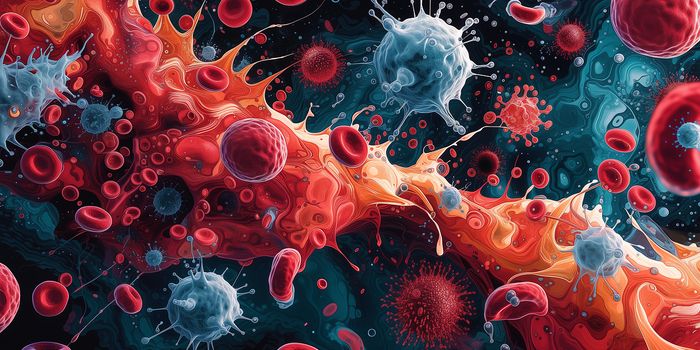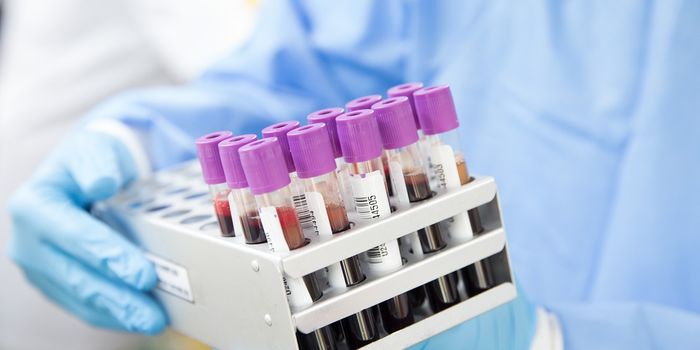TdT Positive Cells - Not Just for Neoplasms
Terminal deoxyncleotidyl transferase (TdT) is a unique DNA polymerase molecule that is expressed by immature lymphoid cells, both normal and mutagenic. As a cell ages, it loses the TdT expression capability. Young lymph progenitor cells would be expected then to have this cell marker; cancerous lymph cells can be mutated versions of those young lymph progenitor cells growing out of control so increased TdT levels could be expected, and in fact have been used diagnostically in laboratory medicine. TdT has been an identifiable marker since the late 1980s where it was found to be enhanced in acute undifferentiated leukemias, immature acute lymphoblastic leukemias, and in a fraction of cases of leukemic patients in blast crisis. TdT acts by catalyzing the reaction that leads to the addition of deoxynucleotides to hydroxyl ends of oligonucleotides as part of DNA synthesis. It also contributes to differences in antibody recognition sites by rearrangement of immunoglobulins or T-cell receptors. It has long been associated with very undifferentiated neoplasms.
A new article published in the journal Human Pathology is a reminder that healthy lymph nodes and lymph cells can also express TdT because they are early lymphoid precursors; this is especially true in pediatric lymph nodes. There are benign TdT positive lymph nodes in pediatric patients and this group focused on characterizing the presence of benign TdT positive cells and characterize the typical phenotype associated with their presence.
Findings included that TdT was sparsely positive in all pediatric cases and in more than three quarters of adult lymph nodes evaluated (n=141). It was noted that there was increased density of TdT positive cells in pediatric lymph nodes and TdT presence was not found to be associated with any clinical or histological factor other than identifying that these were lymphoid precursors with CD34 and CD10 also being expressed.
The study serves as a reminder to be mindful of the common phenotype of TdT positivity in early healthy lymphoid precursors and to carefully avoid misidentification of these cells as early neoplasm markers.
Sources: Human Pathology, International Journal of Biological Markers, American Journal of Clinical Pathology, Pathology Outlines,









